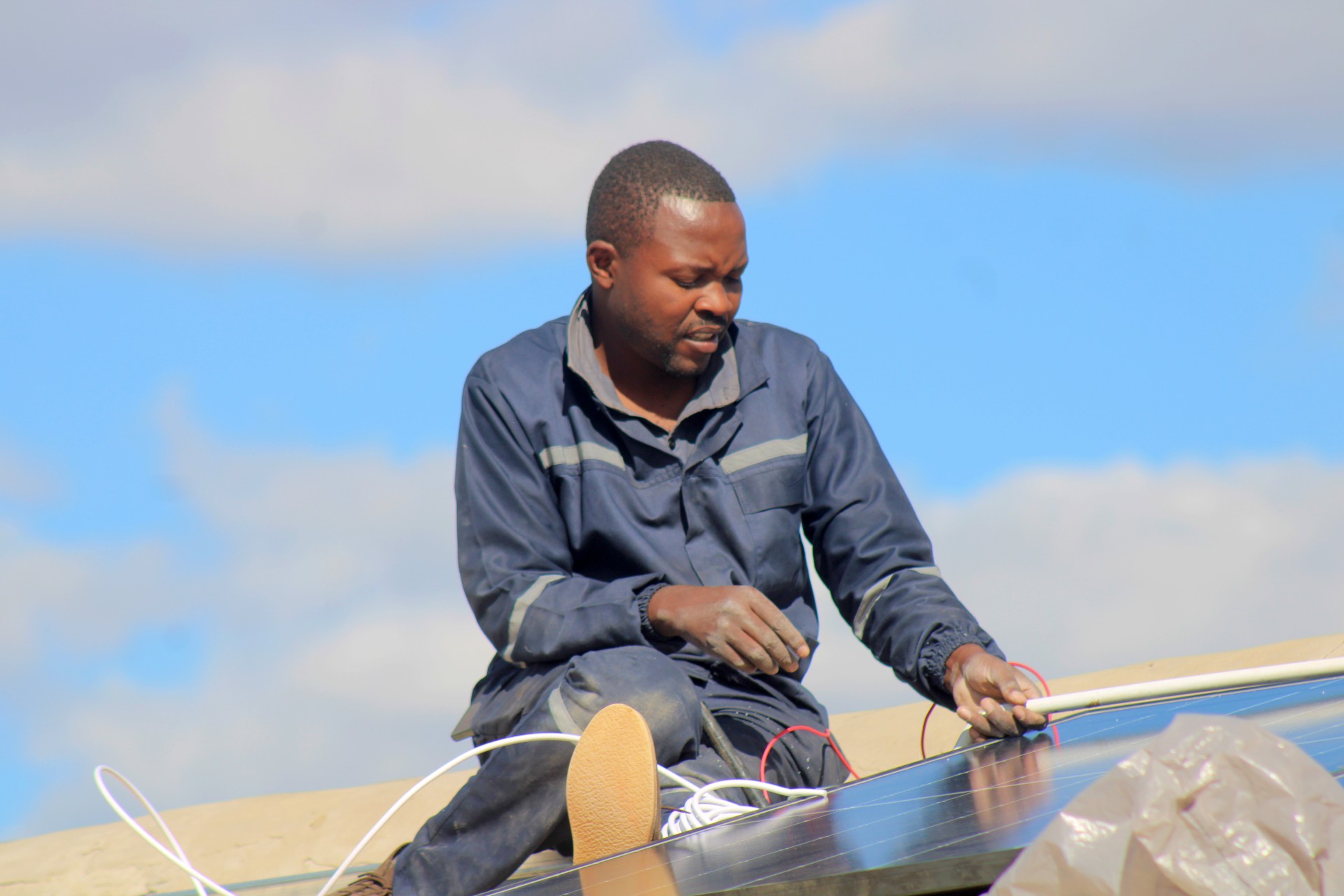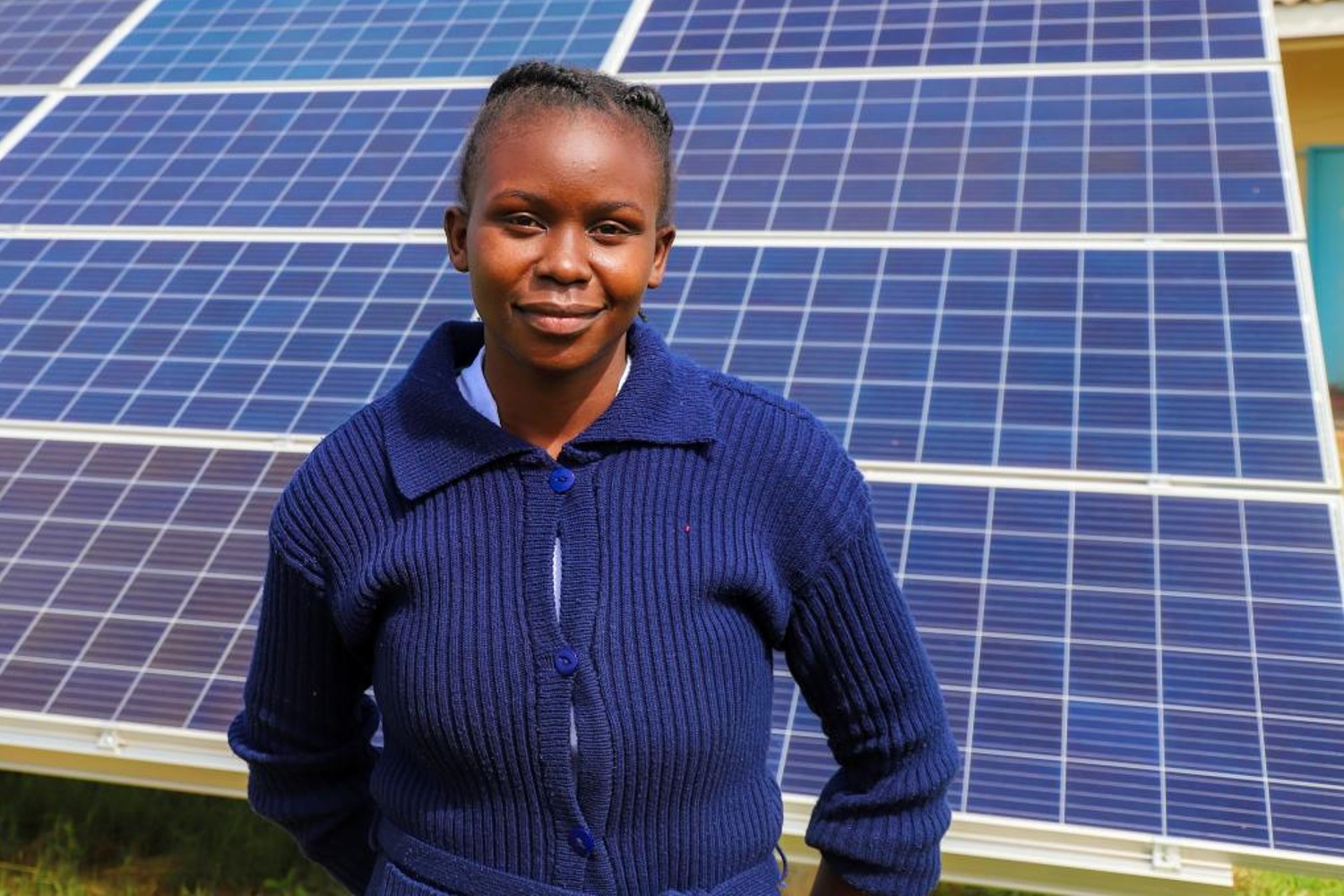When buying a new car, what do you look out for? Leather seats? Engine type? Space? Or maybe even luxury/affordability?
Just as there are different considerations in selecting cars to suit your lifestyle needs, there are different solar panels with different functionalities, depending on your kind of building.
Before installing a solar panel, you need to consider factors like – the cost of the solar panel, its appearance, and energy efficiency. Additionally, the type of solar panel you choose is another determining factor you should consider; it affects how much the installation and manufacturing will cost and how it would fit your rooftop.
Before installing a solar panel, you need to consider factors like – the cost of the solar panel, its appearance, and energy efficiency. Additionally, the type of solar panel you choose is another determining factor you should consider; it affects how much the installation and manufacturing will cost and how it would fit your rooftop.
 |
| Check These Types of Solar Panels Recommended By The Best Solar Companies in Zimbabwe |
We have put together 4 main types of solar panels and how they work; to help you make informed buying decisions, namely:
- Polycrystalline,
- Monocrystalline (aka multi-crystalline),
- Thin Film and
- Concentrated PV Cell.
- Polycrystalline Solar Panels: Polycrystalline is the newest development of solar panels. They are made from fragments of silicon crystals melted together. The polycrystalline solar panel cells are black in colour due to the sun’s reflection on the crystals. The sun reflects differently on silicon fragments than it does on pure silicon cells. The back frames of the polycrystalline are silver in colour, but it has variations. The cells are square and have no gaps between their corners. Polycrystalline is made of silicon wafers organized in rows and columns to form a rectangle covered with glass sheets and framed together. They are composed of fragments of silicon crystals melted together in a model before cutting into wafers. Polycrystalline solar panels have a bluish hue due to the reflection of light off the silicon fragments in a cell. A polycrystalline solar panel has different colours for back sheets and frames. These solar panels are often silver, and the back sheets are usually silver or white.
- Monocrystalline Solar Panels: Monocrystalline is the oldest type of solar panel and the most developed. They are made from over 40 monocrystalline cells and pure silicon as well. Monocrystalline solar panels are black in colour because of how the sunlight reflects on the pure silicon. The cells are black, but the back sheets and frames come in various designs and colours. These solar panels’ cells are shaped like a square, with the corners removed, it has small gaps between them. Monocrystalline is made from silicon wafers rows and columns to form a rectangle covered with glass sheets and framed together. Its solar cells are cut from a single, pure crystal of silicon. Monocrystalline solar panels have black cells because of how light reflects on pure silicon crystals. Their cells are black, but they have various back sheets that come in silver or white and metal frames of black or silver.
- Thin Film Solar Panels: Thin Film solar panels are the newest development in the solar panel industry. They aren’t made from silicon but made from materials like – Cadmium Telluride (CDTE), Amorphous Silicon (a-Si), and Copper Indium Gallium Selenide (CIGS). The a-Si in Thin Film solar panels use non-crystalline silicon and are topped with glass. Thin Film is approximately 350 times thinner than silicon wafers-based solar panels. They can be black or blue, depending on the material they’re made from. Adhesive Thin Film solar panels have thick frames of up to 50 millimetres in thickness and come in blue or black hues, depending on the material.
- Concentrated PV Cell Solar Panel: The concentrated PV Cell is classified as a third-generation solar panel, yet it has a high performance and efficiency rate. The CPV can generate energy like other photovoltaic systems and is part of the multi-junctions solar panels with a high-efficiency rate of up to 41%, of which CPV happens to be the highest so far. Concentrated PV is made by layering 2 or more junctions layered on top of each other to collect energy from multiple portions of the spectrum. A CPV solar panel has curved mirrors, surfaces, lenses, and cooling systems to bundle up sun rays and increase their efficiency. Each one has a solar tracker inside them, which follows the sun to make sure the solar panel is accurately facing the sun at a perfect angle.
Comparing The 4 Types Of Solar Panels:
Comparing all solar panels is a necessary step for choosing a solar panel that best suits your home or office. To compare, you have to check things like the costs of each solar panel, efficiency & performance, disadvantages, and advantages. The charts below will provide more insight.Cost Of Solar Panels:
Each solar panel is built with a different material, and all have different manufacturing processes and manufacturers. These and labour costs determine the cost of each solar panel, both installation, and actual pricing.Check the chart below for the most expensive and cheapest solar panels.
Chart Summary:
- Monocrystalline solar panels are more expensive because of the manufacturing process of Czochralski, which is intensive and wastes silicon.
- Monocrystalline manufacturers have to absorb the cost of making a solar panel from single silicon crystals.
- Polycrystalline solar panels are medium cost because they are produced from silicon fragments rather than single pure silicon crystals.
- Polycrystalline manufacturers and users enjoy less cost because of the simple manufacturing process.
- Thin Film solar panel costs the lowest because the amount you pay depends on the type of thin film solar panel you choose.
- The CDTE Thin Film solar panel is cheaper than the CIGS, which is more expensive to produce than the amorphous silicon and CTDE.
- The Thin Film solar panel cost less to install than the polycrystalline and monocrystalline solar panels.
- Thin Film is less expensive and lighter, which allows for easy installation and low labour costs.
Efficiency Ratings Of The Solar Panels:
Rating the efficiency and performance of a solar system is based on the solar panel’s efficiency rate, temperature coefficient, and generally how compatible that solar panel is with your house.The chart below shows the efficiency Ratings of the monocrystalline, polycrystalline, and Thin Film solar panels.
Chart Summary:
- Thin Film solar panels have a lower efficiency rate, which means that it produces less power than other solar panels.
- The power capacity of Thin Film solar panels varies because there is no standard size.
- Monocrystalline and Polycrystalline solar panels’ temperatures show that most solar panels will generate more power than others as the temperature rises.
- Fire ratings for each solar panel depending on the type of roof your house uses.
Advantages And Disadvantages
Every solar panel has a specific feature, which makes it good. However, they also have several disadvantages like costs, low-efficiency rate, and inability to adapt to certain temperatures, making it easier for you to scratch them off your list.
Before you completely write off a solar panel or decide to select one blindly, be sure to check out the chart below on the advantages and disadvantages of each type of solar panel.
Which Solar Panel Is The Best?
So, which solar panel is the best for you? Every solar panel comes with its own advantages and disadvantages, and what might be a disadvantage to you, maybe what works for the next user of that solar panel. |
| Check These Types of Solar Panels in Zimbabwe |
The polycrystalline solar panel is the best solar panel for you if you live in a residential property with a large space or property. Polycrystalline is more affordable for large spaces and provides efficiency and power.
Your residential property with small spaces can comfortably use a monocrystalline solar panel. Monocrystalline works well for individuals who wish to maximize their energy bills while living in a small space.
As a matter of fact, polycrystalline and monocrystalline are the best choices for homes and other smaller buildings.
Thin Film solar panels are never to be used for your home because Thin Film solar panels have a low-efficiency rate.
Though Thin Film solar panels may be bad for your home, it’s the best choice for commercial buildings that can’t handle the weight of other heavier solar panels like monocrystalline and polycrystalline.
Although Thin Film solar panels are less efficient for residential building rooftops, commercial roofs are more spacious to cover more roofs with solar panels.
Now that you know how various solar panels work, you can use this article to make a more informed decision on the best type of solar panel for you.
Ready to get solar panels for your home or business? Start here.
Compare Top Inverter Brands in Zimbabwe
We work with a wide range of trusted, high-performance inverter brands to build reliable solar systems tailored to your needs and budget.






